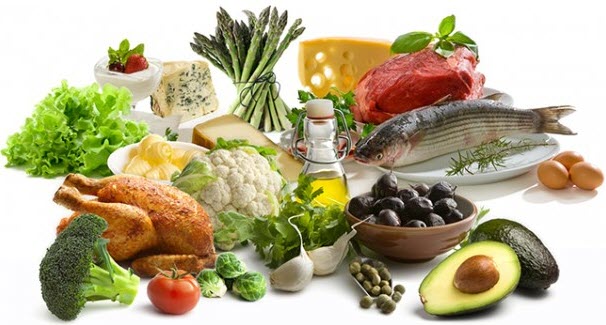Diabetes has become an extremely prevalent illness in today’s society. There are many factors that can lead to diabetes. Some of them include a sedentary lifestyle, stress, and genetic predisposition. But the most often cited reason is an unhealthy diet.
So if you have diabetes, or if your mission is to prevent the illness from occurring in the first place, what types of foods can you eat? In this article, you will discover the answer to that question.
What To Look Out For
When we try to address the recommended dietary habits, it is important to know why we recommend certain foods and not others. The main point that you should address when creating a meal plan is blood sugar spikes. For instance, foods that contain a lot of sugar (fruits, processed foods, carbs in general) can create blood sugar spikes, which produces an insulin release.
These carbohydrate foods can be separated into two categories: simple and complex carbs. Simple carbs are those that are digested and enter the bloodstream much faster, thus causing larger blood sugar spikes. The complex carbs take longer to digest, therefore causing less of an upset. This is the main thing to look out for.
Moderation Is Key
But with that being said, diabetics are encouraged to eat a moderate diet that includes all natural, organic foods, that can feed the body with all the necessary vitamins, minerals, protein, essential fats, and fiber. The issue is not really in the food itself, but in the quantities you can eat.
A diabetic can still indulge in a small sugar treat from time to time but it should always be done in moderation. There is a certain hierarchy of foods by which you should create your daily dietary choices. So let’s see which foods are the healthiest.

1. Protein
Protein-rich foods are an excellent choice for diabetics, since they are generally healthy, and do not cause blood sugar elevation. The best choices include beef, chicken, pork, turkey, fish, seafood, tofu, nuts, dairy and eggs. Always go for low fat parts of meat and low fat dairy. The preparation of food is also important. Avoid fried foods and rather bake, cook or grill your meat and fish.
2. Fats
Fats are also good, but you should make a distinction between healthy (unsaturated) and unhealthy (saturated) fats. The healthy fats include vegetable oils, nuts, seeds and avocados. Fish rich in omega-3 fatty acids is also good for brain and cardiovascular health. But you should stay away from saturated fats found in animal products, and also in processed foods.
The oils used in processed foods are extremely unhealthy as they are hydrogenated to make the food last longer. Our bodies unfortunately have not evolved for their consumption, and they can create inflammation in the gut and a host of other issues as well.
3. Starches
As has been previously mentioned, carbs should be separated as simple and complex. You should limit your consumption of simple carbs and eat more of the complex varieties. Some excellent complex starches include brown rice, oatmeal, quinoa, buckwheat, millet, baked sweet potato, and whole grain breads.
Avoid products made with white flour, and processed grains like white rice, sugar-rich cereals, and white bread. The same is true for all the various processed snacks like Snickers, Oreo, etc.
4. Vegetables
For diabetics, vegetables should be the main food on the menu. Vegetables contain a host of nutrients, and fiber which is essential for regulating blood sugar.
The best diabetic friendly vegetables are green, fiber-dense varieties, such as broccoli, kale and spinach. Try to limit your sodium intake and added sauces/toppings, and you’re good to go.
5. Fruit
Fruit contains a lot of sugar, but it’s also extremely healthy, due to the large amount of minerals and vitamins, as well as fiber. It should be treated as a semi-occasional treat, but don’t overindulge in it.
Basically, fresh and frozen fruit is the healthiest. You should avoid canned fruits with heavy syrup, and also fruit drinks, since they contain very little fiber and can cause a faster blood sugar increase.
6. Drinks
Ideally, the best drinks you can have are water and tea. All the other drinks, such as coffee, beer, wine, energy drinks, hot chocolate, should not be consumed on a daily basis, especially if there’s extra sugar added to them.
So that is the general info you should have in mind. If you’re trying to create a diabetic-friendly diet, limit your consumption of simple sugars and fried foods. At the same time try to add a variety of healthy foods so that you don’t miss any of the important macro and micro-nutrients (protein, carbs, fats, minerals, vitamins, and fiber).
I hope this article has expanded your knowledge on this topic, and will serve you as a guide in creating and maintaining healthy dietary habits.